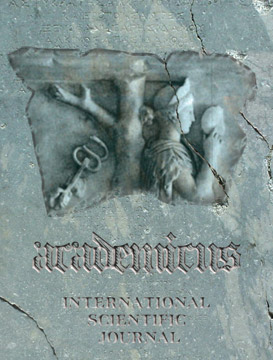Title:
Author(s):
Abstract:
The article recalls how in 2015, the year of the centenary of the Armenian Genocide, important publications emerged, shedding a light on the incident that will be difficult to ignore. In particular, it was the archives of the Congregation for the Oriental Churches, the Vatican Secret Archives and the Historical Archive of the Secretariat of State which offered up precious material for the knowledge of what was happening to Armenians in Turkey to Georges-Henri Ruyssen SJ. To the latter is owed a valuable and significant work of reconstruction undertaken over many years, and consisting of eight volumes. These contain letters written in Turkey by those in contact with the people, who with their own eyes saw what was happening, and who followed what was occurring with dismay. Their relationship with the territory and their direct experience are fundamental. The correspondences begin in the years 1894-1896, of which volume IV, ranging from 1908 to 1925, is drawn precisely from the Secret Vatican Archives(ASV) as well as the Historic Archives of the Secretariat of State, the Section for Relations with Territories (SS.RR.SS). The author also points out a small valuable contribution by Jewish intellectuals of the time, translated into Italian with the title Pro Armenia. She underlines how, immediately, some Jews tried to intervene, to stop the genocide, and to assist Armenians in various ways. Today, it is difficult to ignore what happened, to ignore and to reduce what historically is the first genocide of the twentieth century in Europe. An event which has been minimized and denied: whose effects are still being felt today, and which has left a trail at individual, family and social levels. Armenian terrorism, which has resulted in attacks and deaths in Turkey and elsewhere, derives from these negations. The same is the case for a strong nationalism still prevalent today in the Republic of Armenia, which is constrained by circumstances to adopt a defensive political stance and – out of necessity – to maintain good relations with Russia. We have to wish that, after those resounding acknowledgement of the genocide, Armenia will be able to look forward to a more serene future.
Keywords:
archives; correspondences; witnesses; collation of memories and history; migration; recognition; genocide
Full Text PDF:
References:
View complete reference list, click
here
Digital Object Identifier DOI:
The article's content ©Academicus™ Armenia, the Armenians: between memory and future
by
Prof.Dr. Maria Immacolata Macioti
is licensed under a Creative Commons
Attribution-NonCommercial 4.0 International License.
Presented:
September 2015
Included for Publishing:
December 2015
Published:
January 2016,
Volume 7,
Issue 13
Academicus International Scientific Journal is an Open Access Journal. This means that all content is freely available without charge to the user or his/her institution. Users are allowed to read, download, print, search, or link to the full texts of the articles in this journal without asking prior permission from the publisher or the author. This is in accordance with the BOAI definition of open access. Users are obliged to cite the source (Academicus International Scientific Journal) and the author, according to the international citation standards.
To learn more about the OA Policy followed by Academicus ISJ, read Journal Regulations
Academicus
International Scientific Journal
pISSN 2079-3715
eISSN 2309-1088
Address:
Sheshi i Flamurit, Rruga Muze
Al-9401 Vlorë, Albania
Tel: +355 68 60 60 555
info@academicus.edu.al
https://academicus.edu.al



 Scholar
Scholar
 Crossref
Crossref
